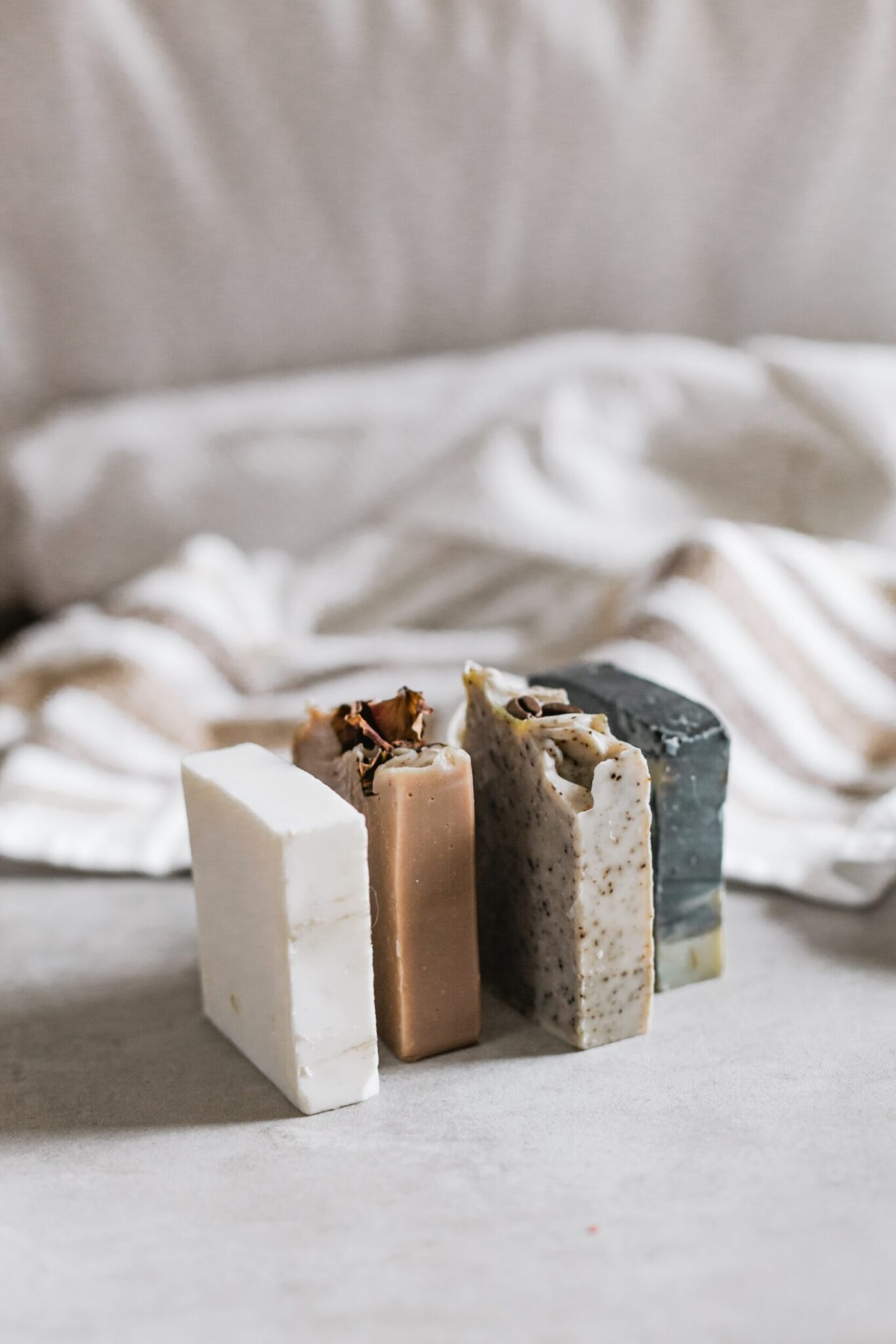Previously found only on the organic shelves of supermarkets, solid cosmetics have gradually become as fresh as their liquid counterparts. Cutting-edge formulas, interesting active ingredients, benefits for the environment… until then we hadn’t had much to complain about!
Problem: the magazine 60 million consumers found the loophole by studying ten different shampoos, nine toothpastes and eight different solid deodorants.
Solid cosmetics – the positive sides
Less packaging and pretty decent wording overall
The advantage of solid cosmetics is that they contain little or no water. So, they don’t need to be wrapped in plastic so they can be stored and taken from point A to point B!
A real advantage given that those who say less water and packaging necessarily mean less weight to carry which drastically reduces the carbon footprint compared to a liquid product.
Another reassuring element: all solid products tested have, with few exceptions, a Cosmeto’Score A or B ; as a reminder, this is a rating system for cosmetics (independent of industrial lobbies) developed by the National Consumer Institute. It allows you to evaluate “the impact of products on both health and the environment” according to 60 million consumers.
If we talk about “a few exceptions”this is because some cosmetics include active ingredients or molecules that can be “irritating, sensitizing or harmful to the environment”.

Solid cosmetics – the downsides
A lack of effectiveness of solid shampoos
Solid shampoos are divisive. Or we love them because they take up little space and they are often formulated without silicones, sulfates or (bad) parabensor we hate them.
Overall, the twenty speakers judged the effectiveness of this type of product quite correct but after a month of testing, these often revert to liquid formats and conventional to achieve greater efficiency.
Solid toothpastes are not up to par
The special feature of solid toothpastes is that they are generally – here all but one – without preservatives. A parameter to take into consideration given that the mouth is a very fertile environment for bacteria.
By sharing the same pebble in the family, for example (rubbing the toothbrush on it regularly), we can create a fertile ground for bacterial development.
Another alarming fact: all solid toothpastes contain foaming and abrasive elements for enamel regarding oral health (siwak, kaolin, hydroxyapatite, charcoal, calcium carbonate).
Be careful of allergenic ingredients in deodorants
If the deodorants tested for 60 million consumers have the majority of a clean composition without controversial ingredients such as aluminum salts, the magazine notes it anywaymay contain allergenic and sensitizing essential oils for the skin but also sodium bicarbonate.
The latter are present to guarantee the antimicrobial aspect of the products but also to flavor them. Instead, they can pose a risk to infants, pregnant women (in the case of essential oils) and to people with fragile skin. The risk ? Strong reactions to baking soda. So stay vigilant and test new products on small areas before painting yourself!
An image credit: @Unsplash.
Source: Madmoizelle
Elizabeth Cabrera is an author and journalist who writes for The Fashion Vibes. With a talent for staying up-to-date on the latest news and trends, Elizabeth is dedicated to delivering informative and engaging articles that keep readers informed on the latest developments.




